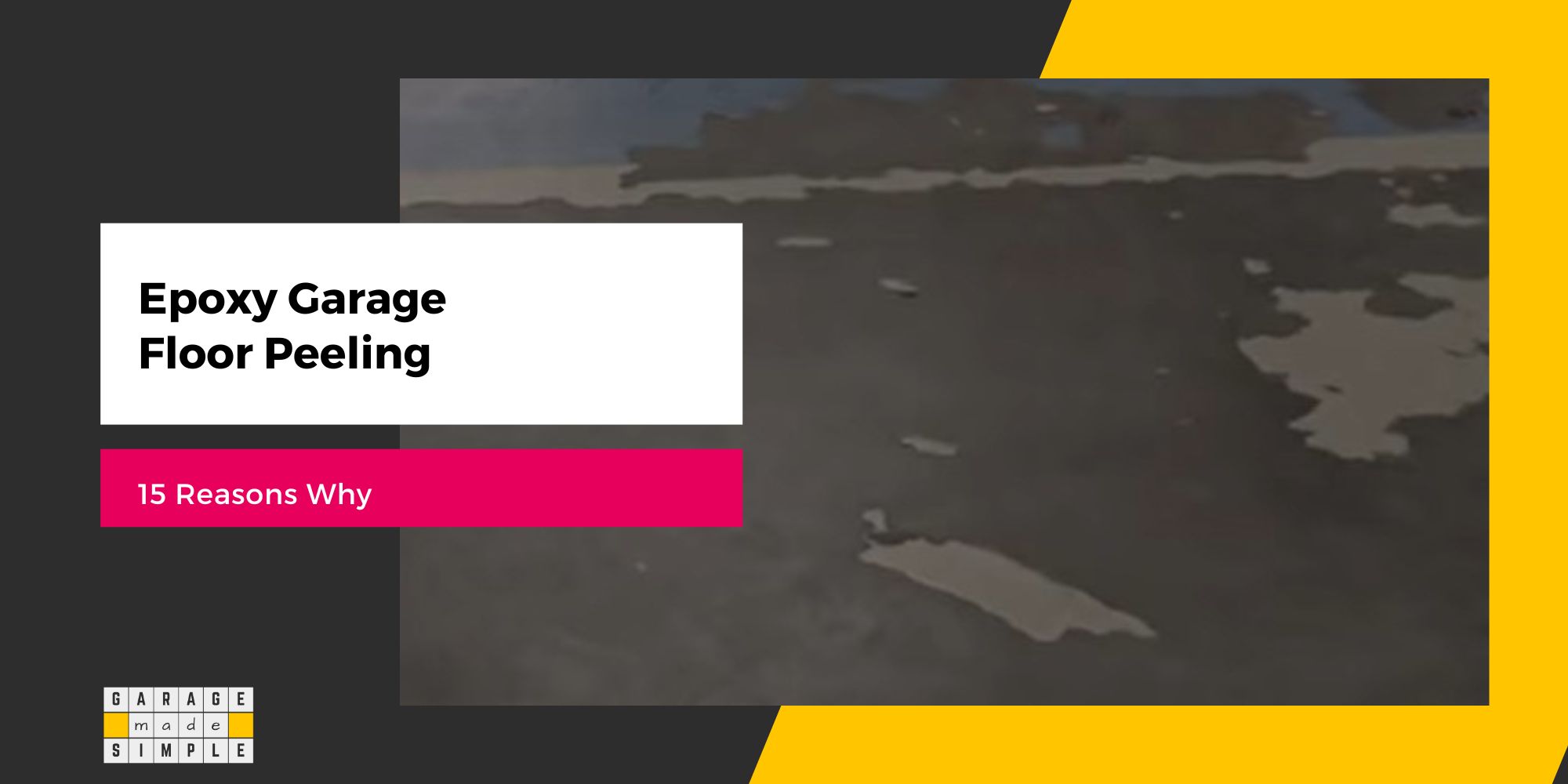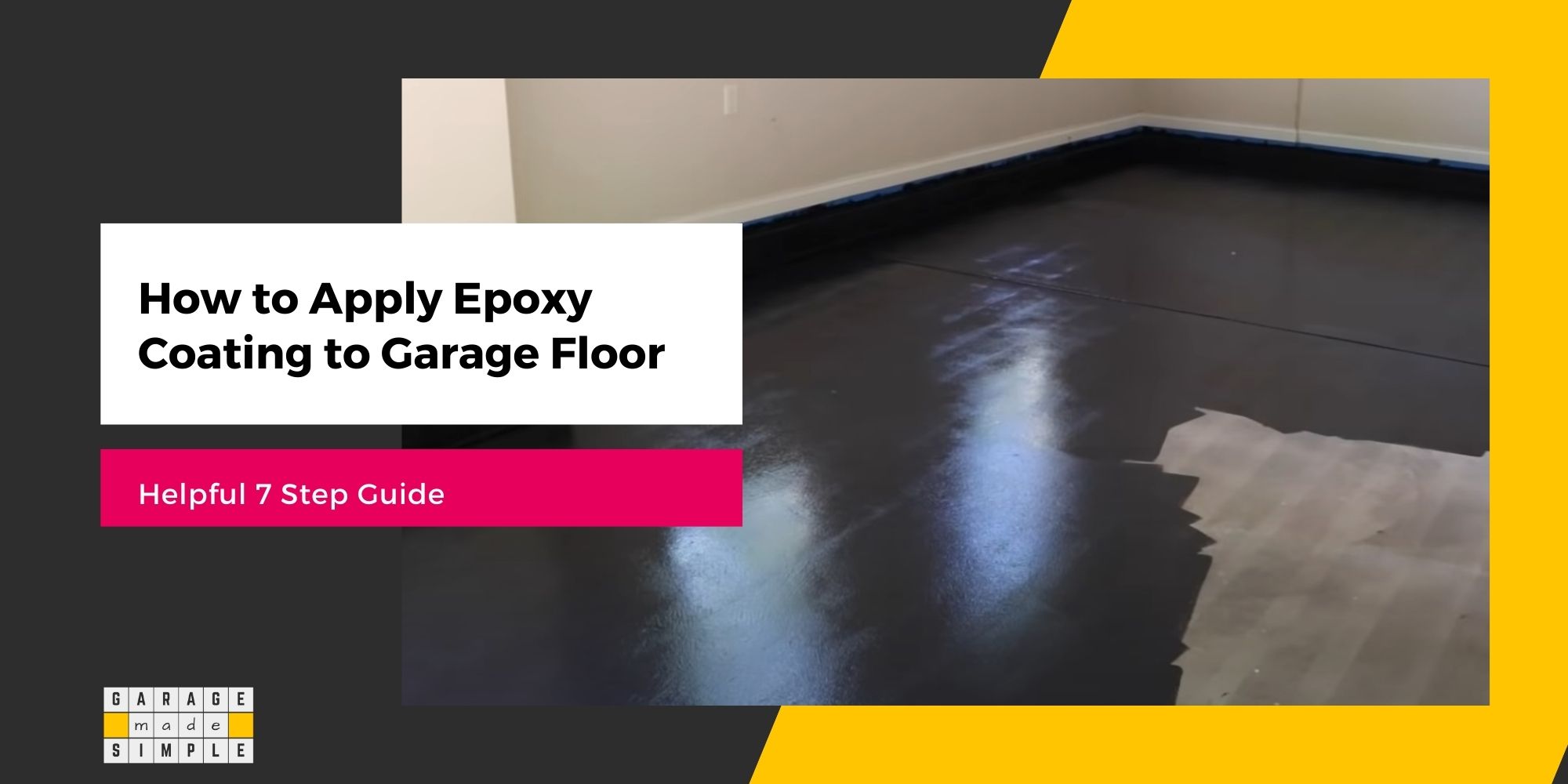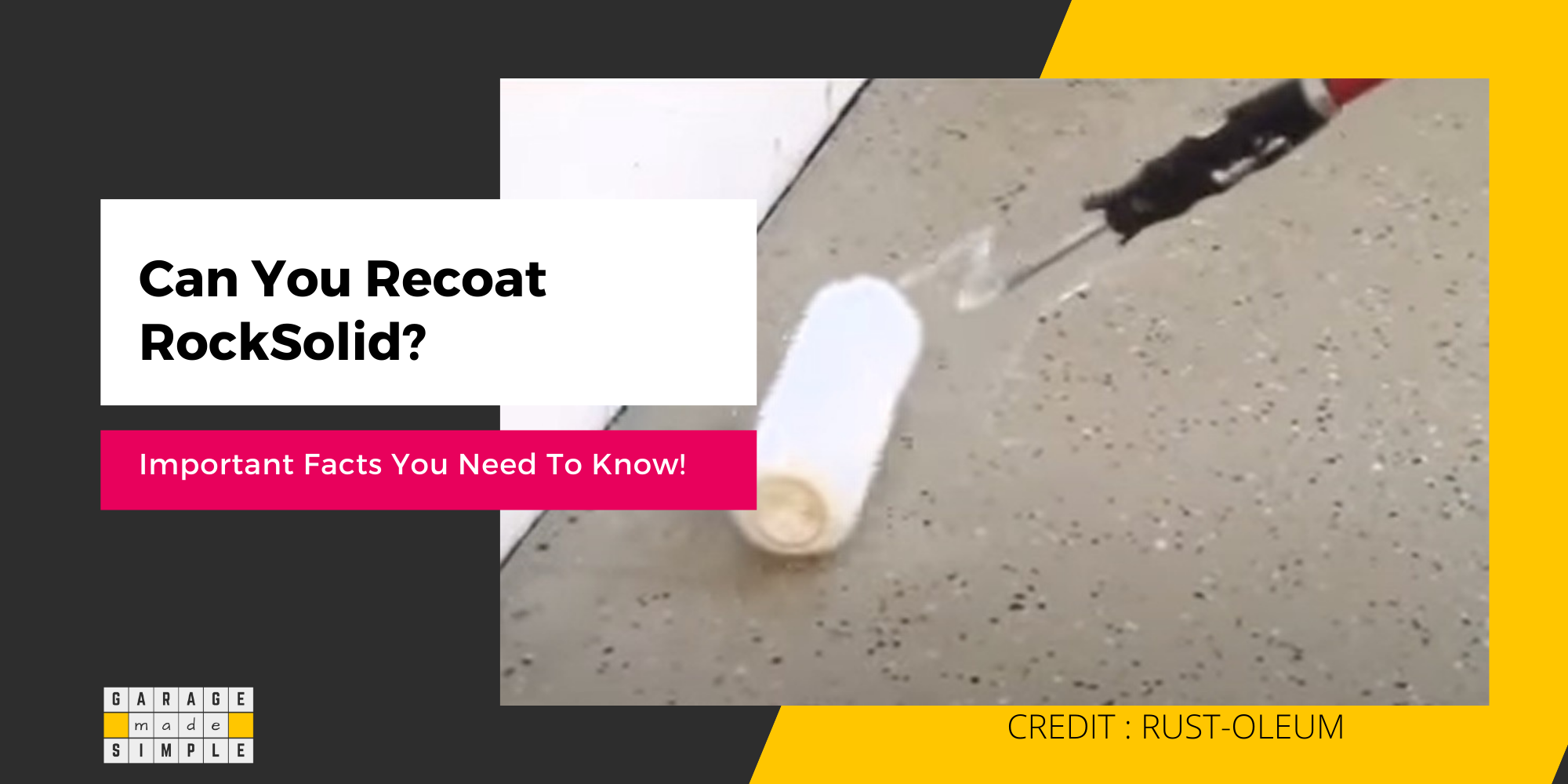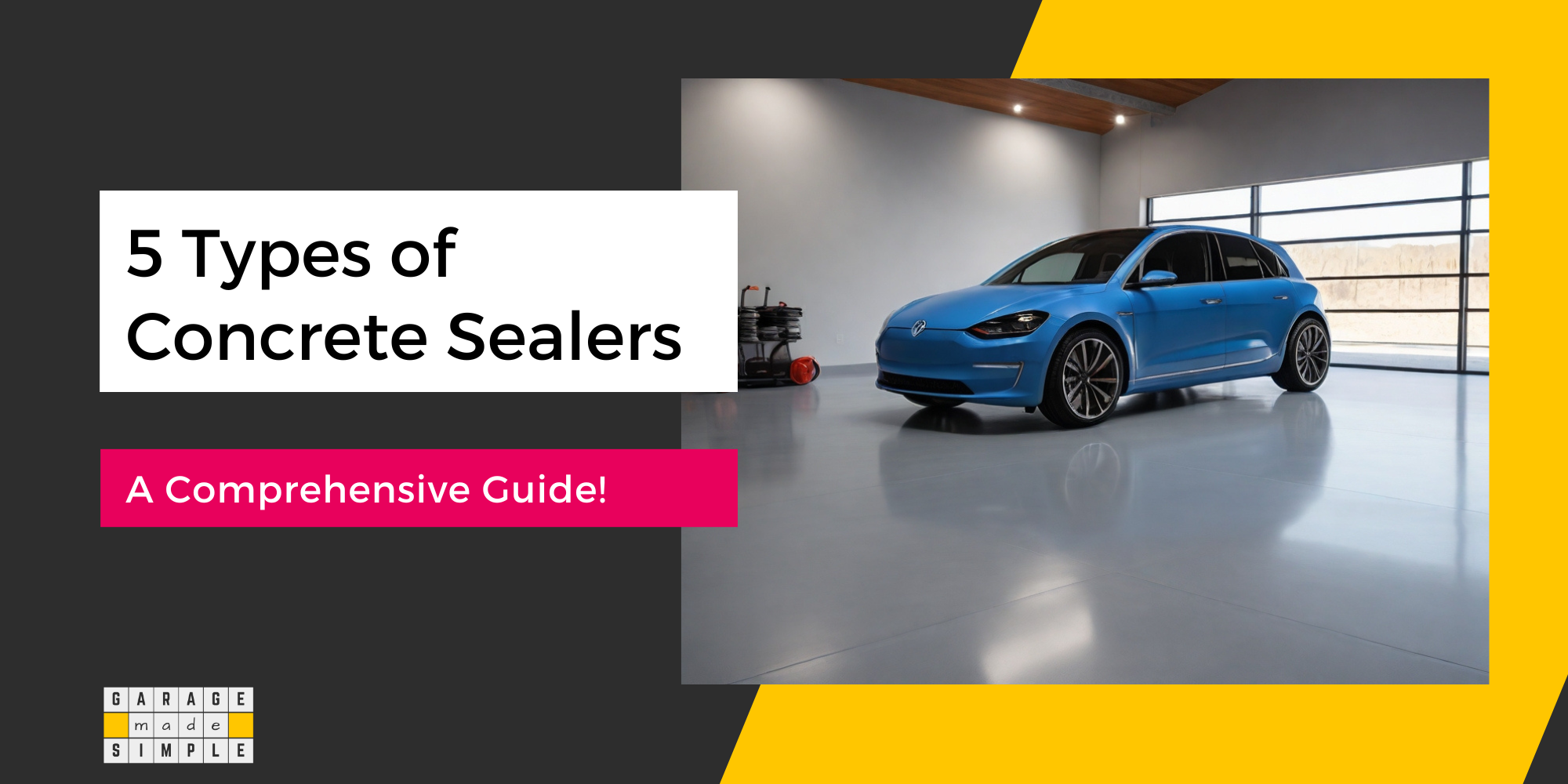Sealing Garage Floor Concrete: (An Easy 7 Step Guide!)
As an Amazon Associate, I earn from qualifying purchases.
The Importance of Sealing Garage Floor Concrete
Sealing garage floor concrete is a critical step in garage floor construction and should not be overlooked. Sealing provides essential protection and offers several benefits that contribute to the longevity and aesthetics.
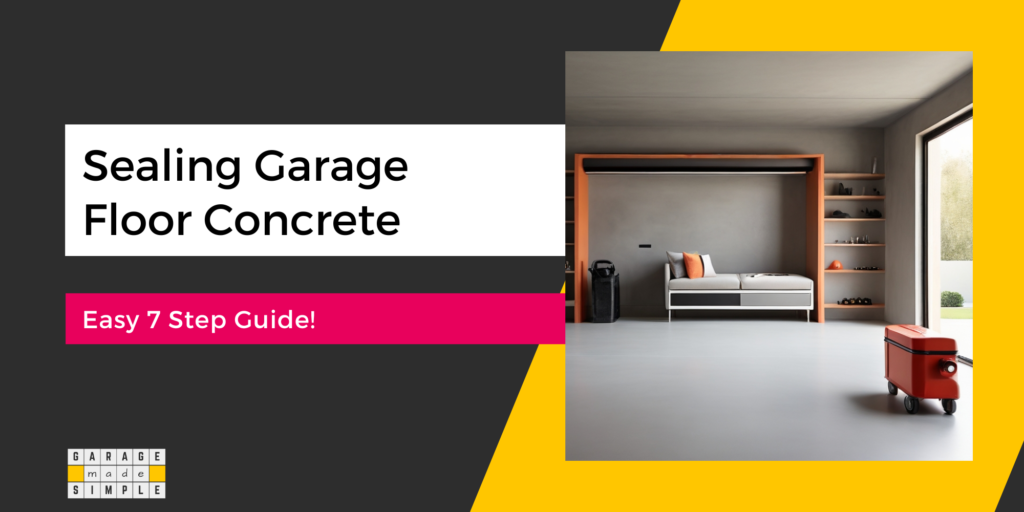
Here is how sealing your garage floor concrete is helpful:
Prevents Water Damage
Concrete is porous, meaning it can absorb water. Moisture penetration damages concrete and results in several problems, including cracking, spalling, and the growth of mold and mildew.
By sealing your garage floor concrete, you create a barrier that prevents water from seeping into the concrete, protecting it from potential damage.
Enhances Durability
Sealing garage floor concrete increases its durability and resistance to wear and tear.
Topical sealer strengthens the surface, making it less susceptible to cracking, chipping, and erosion caused by heavy traffic, vehicle fluids, and environmental factors.
A properly sealed garage floor can withstand the test of time and maintain its structural integrity.
Preserves Appearance
Over time, exposure to the elements can cause discoloration and fading of the concrete surface.
Sealing your garage floor concrete helps preserve its original color, keeping it vibrant and visually appealing.
Moreover, certain sealers can further enhance the natural beauty of the concrete, providing a polished and finished look.
Protects Against Stains & Chemicals
Spills from oil, grease, or other substances can leave unsightly stains on your concrete garage floor. Sealing creates a barrier that prevents these stains from penetrating the concrete, making it easier to clean and maintain.
Sealers act as a shield against the damaging effects of chemicals, such as deicing agents used during winter.
UV Protection
Even though a garage floor has a roof over it, it can get exposed to sunlight if the doors and windows are kept open for ventilation. Continuous exposure to sunlight can cause the concrete surface to fade and weaken over time.
Sealing your garage floor concrete with a UV-resistant sealer helps protect it from the harmful effects of UV rays, maintaining its color and structural integrity.
For a more exhaustive list check out my earlier article, 9 Great Reasons Why You Should Seal Your Garage Floor!
Benefits of Penetrative Sealer for Sealing Garage Floor Concrete
For protecting your garage floor concrete, a penetrative sealer is an excellent and necessary choice. Here are two key benefits:
Long-term Protection
Penetrative sealers go deep into the concrete, filling up the concrete pores. In effect they do not leave any space for water to permeate in and damage the concrete from within.
By keeping water, chemicals, and stains at bay, you can effectively increase the concrete garage floor lifespan.
Retains Natural Concrete Look
One of the advantages of penetrative sealers is that they don’t alter the natural appearance of the concrete, as they do not form any film on the surface.
Penetrative sealers are great if you like the natural and industrial look of concrete.
Recommended Water Based Penetrating Sealer
Armor SX5000 Water-Based Silane-Siloxane Sealer
Water Based Penetrating Sealer
- Silane Siloxane Water Repellent
- Won’t change look or color of the Concrete
- Excellent sealer for unsealed garage floors
- Will reduce damage caused by snow and ice, road salts, environmental exposure, and staining
Benefits of Topical Sealer for Sealing Garage Floor Concrete
Topical sealers, on the other hand, protect the concrete surface by forming a film.
They provide an extra layer of surface protection and can alter and enhance the look of your garage floor concrete.
Consider these benefits of Topical Sealers:
Surface Protection
Topical sealers create a protective layer on the surface of the concrete, safeguarding it against abrasion, UV rays, and stains.
This added protection helps preserve the appearance and integrity of your concrete garage floor.
Enhances Color and Gloss
Topical sealers have the ability to enhance the color of your concrete, making it richer and more vibrant.
Moreover, they can provide a glossy or semi-glossy finish, adding an aesthetically pleasing class to your garage floor.
Why Use Both Types for Sealing Garage Floor Concrete?
Using both penetrative and topical sealers in combination offers comprehensive protection for your garage floor concrete. Here’s why it’s beneficial:
Dual Layer of Protection
By utilizing a penetrative sealer and a topical sealer, you create a two-step approach to shield your garage floor.
The penetrative sealer protects the concrete from within, while the topical sealer protects the concrete surface. This combination ensures maximum protection against different types of damage.
Synergistic Benefits
Penetrative sealers and topical sealers work together, complementing each other’s strengths.
The penetrative sealer provides long-term protection against water intrusion, while the topical sealer enhances the appearance and adds an extra layer of defense against surface damage.
Together, they create a powerful defense system for your garage floor.
Recommended Solvent Based Topical Sealer
Armor AR500 Solvent Based Acrylic Wet Look Sealer
Solvent Based Topical Sealer
- Will enhance dull and faded surfaces with a high gloss wet look.
- Will reduce damage caused by surface abrasion, road salts, water absorption, and exposure to the elements.
- UV resistant, non-yellowing, breathable.
NOTE: However, the topical sealer should not be applied in case you plan to apply an epoxy coat to your garage floor. Not only is it superfluous, it will actually not allow the epoxy to bond with the concrete. The epoxy coat will start peeling off.
Step-by-Step Process for Sealing Garage Floor Concrete
To properly seal your garage floor concrete, follow these step-by-step instructions:
1. Wait for Full Curing
Sealing garage floor concrete before the concrete has fully cured will do more harm than good. The sealer will interfere with the curing process. The concrete garage floor will fail to achieve its full potential strength.
2. Clean the Surface
Thoroughly clean the concrete garage floor, removing any dirt, debris, or stains. You can use a pressure washer or suitable cleaning agents to achieve the best results.
3. Allow Drying Time
Give the concrete garage floor sufficient time to dry completely before applying any sealer. The moisture content of the concrete should be less than 6%.
4. Apply Penetrative Sealer
Use a roller or sprayer to apply the penetrative sealer evenly across the entire surface of the garage floor. Follow the instructions on the product for the recommended application method and coverage.
5. Allow Penetration
Allow the penetrative sealer enough time to penetrate the concrete surface, usually a few hours or as specified by the manufacturer. It is best to wait overnight before applying the topical sealer.
6. Apply Topical Sealer
Once the penetrative sealer has dried, apply the topical sealer using a roller or sprayer. Ensure even coverage and follow the manufacturer’s guidelines regarding the number of coats and drying time between coats.
Typically you need 2 coats, wet on wet, to get an uniform thick coat of topical sealer.
7. Curing Time
Finally, allow the sealer to cure completely before subjecting the garage floor to foot or vehicular traffic.
Thank you very much for reading the post. I do hope you found it informative and useful.



